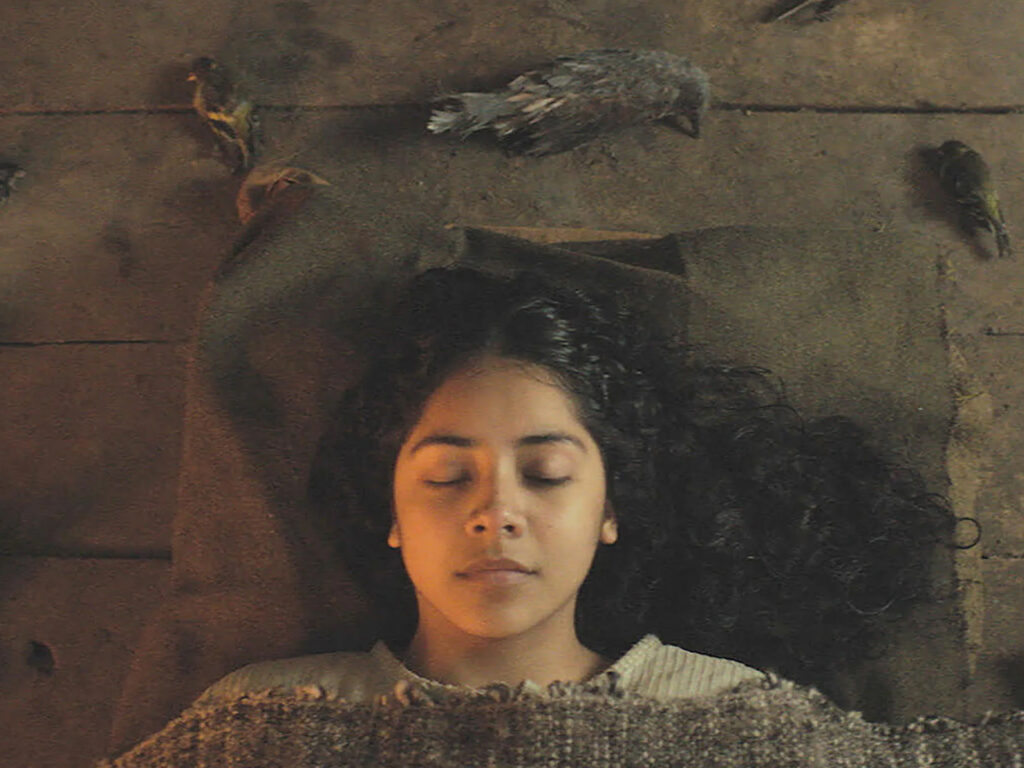A World Film Dramatic Competition nominee at the 2023 Sundance Film Festival, Sorcery risks being missold as a high-octane action thriller. This story is of a young Indigenous girl on the island of Chiloé in Chile in the late 19th century, who sets out for revenge after her German foreman brutally murders her father. Realising that the authorities will not aid her, she turns to a powerful collective of sorcerers for help. The film is based on the true story of La Recta Provincia, who were accused of witchcraft by the state. If you’re expecting some kind of hot-blooded revenge flick akin to The Crow (1994) or I Spit on Your Grave (1978), then you better rein in your expectations. Sorcery is, in fact, not primarily about revenge at all.

Thirteen-year-old Rosa, played with remarkable sincerity and power by Valentina Véliz Caileo, is a native Huilliche but at the beginning of the film is a practicing Christian. As the film progresses, she becomes the centrepiece of an enchanting, often bleak story about religious identity and colonisation. Her powerlessness rests at least in part because she is in limbo, occupying a liminal space between her indigenous heritage and her life working for European settlers. In her quest for justice, she rediscovers her Huilliche identity, most visibly seen in a powerful, eerie sequence where a local witch (Neddiel Muñoz Millalonco) helps her renounce her Christian faith. “May these waters wash away the waters you were baptised with” as she phrases it, uttered amid a ritualistic chant. It is no coincidence that Millalonco is an accomplished Huilliche traditional singer, poet, and researcher. Director Christopher Murray’s key concern is an exploration of identity and history in the face of colonial trauma, condensed into the story of one girl and one island.
Suitably then, while clearly taking cues from horror and action films, Murray (who also co-wrote the script alongside Pablo Paredes) makes this an altogether slow affair. Sorcery is not a long film, but Rosa’s story is explored with a deliberate, arguably frustrating patience. There is little in the way of gruesomeness or gore, implying that the physical and structural violence of the authorities is in fact more deserving of condemnation than anything done by Rosa or La Recta Provincia. Murray alludes to supernatural elements in subtle ways; the circling of birds overhead, sound design that wavers from claustrophobic to piercing, and an end ritual that in its context doesn’t even feel all that horrifying. Sorcery’s great strength is that it simultaneously mystifies the story with a mild air of otherworldliness while demystifying the lives and actions of the Huilliche natives.
This being the case, you may be left longing for a film that embraces a style that wavers further towards visual inventiveness and trickery. But Murray refuses to shirk the cold, hard reality of what is happening. The same is true of the characters, who do their part to bring a bleak but fascinating footnote of history to life with a low-key vividness and power. Caileo especially is marvellous, a steely determination never giving way to outright rage as she wanders between ideas of who she is meant to be.
Sorcery is not the blood-soaked revenge thriller you may expect. Those films have their place, and there will inevitably be many more. But films like this one offer something more. Murray’s sombre, fascinating tale is less about a teenage girl looking for payback than it is about rediscovering native heritage in the face of colonisation, prejudice, and grief. A lesser-known story that merits thoughtful contemplation, Sorcery is bewitching.
Sorcery is in cinemas now.
